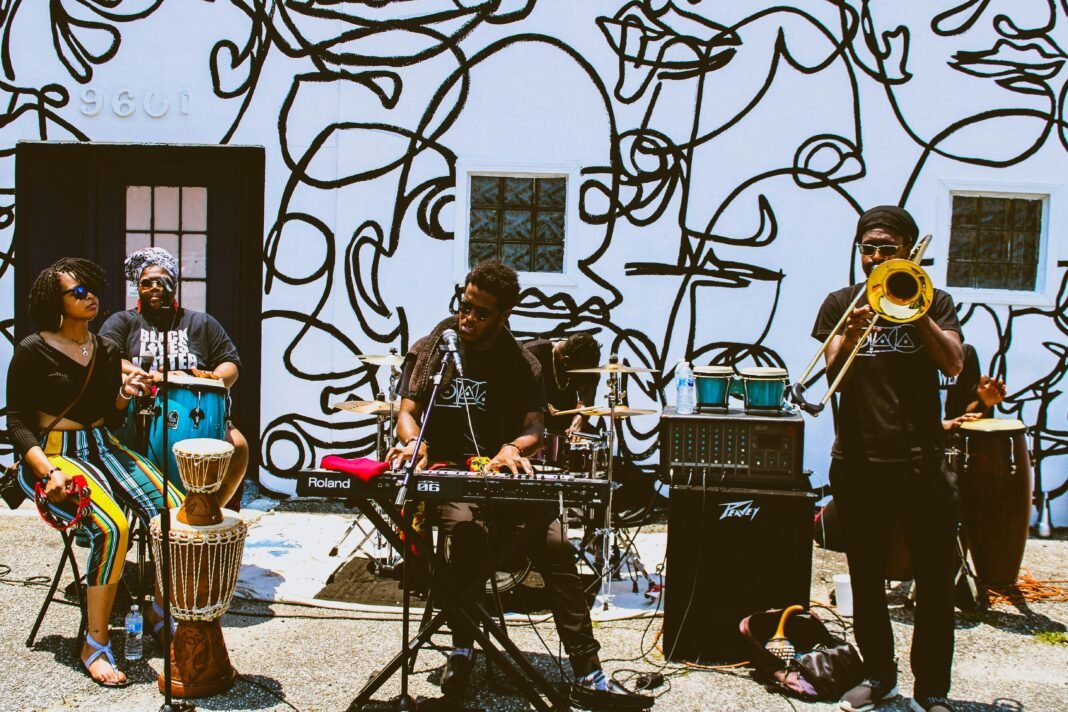This Content Is Only For Subscribers
NPR Interview Transcript
Host: Jen
Guest: Clinton Benoit, Haitian Singer
Platform: NPR
Episode Summary
In this NPR interview, host Jen speaks with Haitian singer Clinton Benoit about Haiti’s ongoing turmoil and its deeper historical roots. Drawing on his unique background in social work, law enforcement, and music, Benoit blends artistry with activism as he reflects on the legacy of the Haitian Revolution, the rise of gang dominance, and the daily struggles confronting ordinary citizens. He calls for solidarity from the Haitian diaspora and the international community, while offering a preview of new music inspired by Haiti’s enduring resilience in the face of crisis.
Transcript
Jen (Host): Clinton, welcome to NPR. It feels essential to hear your voice now, given the current unfolding events in Haiti.
Clinton Benoit (Guest): Thank you, Jen. It’s an honor to speak with you. Haiti is in a tough place, and I believe it’s essential to keep telling our story.
Jen: Let’s start with the present moment. Haiti has faced political upheaval, economic collapse, and now widespread violence. How would you describe the situation today?
Benoit: Chaotic. Communities are being torn apart by gang violence. Ordinary families are caught in the middle, schools shut down, businesses destroyed, and entire neighborhoods are living under fear. It’s painful to watch. Yet, in the midst of all this, Haitians continue to persevere. We’ve always had resilience as a people, but the pressure right now is immense.
Jen: Many people connect Haiti’s modern struggles with its revolutionary past. How do you think the Haitian Revolution has influenced the way Haitians respond to crises today?
Benoit: The Revolution is our foundation. In 1804, we were the first Black republic, born out of a fight for dignity and freedom. That history of resistance is in our DNA. When Haitians face oppression today, whether from corrupt leaders or gangs, that same spirit of defiance is what fuels us. The Revolution reminds us that we are capable of significant change, even against impossible odds.
Jen: And yet the gangs have become an overwhelming force. What do you make of their rise and their control in so many parts of the country?
Benoit: It’s tragic. The gangs have filled a void left by weak institutions and failed leadership. They exploit poverty, unemployment, and despair. What we’re witnessing is not just criminal activity, it’s a takeover of daily life. People are forced to pay gangs for protection, children are recruited, and communities lose hope. To me, it feels like a new kind of colonial rule, one that shackles our people in fear.
Jen: You’ve said before that music is more than entertainment in Haiti. What role does it play in moments like this?
Benoit: Music has always been a form of resistance. Funky Konpa, rara, and folk songs carry the people’s stories. In times of slavery and dictatorship, music kept our spirits alive. Today, it’s the same. When the news is filled with violence, music is how Haitians breathe, how we push back, how we say, “We will not be silenced.” Artists have the duty to reflect reality and to inspire change.
Jen: Given the state of crisis, what steps do you think the Haitian diaspora and the global community can take that will make a real difference?
Benoit: First, we need solidarity, not pity, not charity. The diaspora has enormous power to invest in schools, clinics, and local businesses. The international community should stop applying band-aids and start supporting long-term reforms that strengthen governance, justice, and security. Haitians don’t want to be managed; we want to build our future.
Jen: Before we close, I want to ask about your music. How is this struggle shaping your upcoming projects?
Benoit: My new work is very personal. The songs speak about survival, about families living in fear but still finding joy, about holding on to hope. They’re inspired by both the Revolution and today’s reality, reminding us that even when the situation feels impossible, Haitians have always found a way forward. I want the world to hear that we are not only victims; we are also fighters and creators.
Jen: Clinton Benoit, thank you for sharing your perspective and your music with us today.
Benoit: Thank you, Jen. And thank you to NPR for giving Haiti’s voice a place to be heard.
Listen to the Full Interview
You can hear Clinton Benoit’s whole conversation with NPR’s Jen, including music clips and extended discussion, in the attached audio interview.
Listen Now:
🔊 Available on NPR, Spotify, Apple Podcasts, and YouTube.



